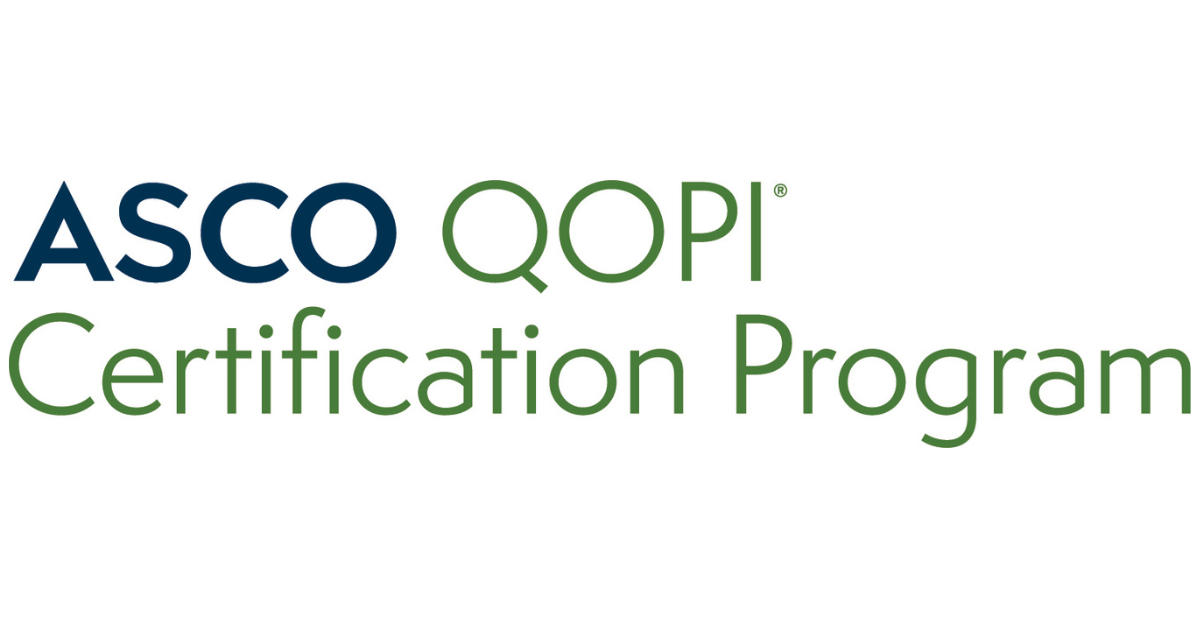
PHILADELPHIA (March 22, 2024) – Fox Chase Cancer Center and Temple University Hospital – Main Campus have been recognized by the QOPI Certification Program LLC as successfully completing a three-year recertification for outpatient hematology-oncology practices that meet nationally recognized standards for quality cancer care. The QOPI program is a wholly owned subsidiary of the Association for Clinical Oncology and an affiliate of the American Society of Clinical Oncology (ASCO).
“Excellence is an integral part of all we do. To receive validation from a well-respected organization about our work is something to celebrate,” said Robert Uzzo, MD, MBA, FACS, President & CEO of Fox Chase Cancer Center and Executive Vice President, Cancer Services, Temple University Health System.
“This recognition is significant because it includes for the first time hematology-oncology outpatient services at Temple University Hospital – Main Campus,” said Abhi Rastogi, MBA, MIS, President and CEO of Temple University Hospital Inc. and Executive Vice President of the Temple University Health System. “Our certification recognizes the exceptional dedication of all at Fox Chase and TUH – Main Campus who contribute to the care of our cancer patients.”
“In particular,” Uzzo added, “I would like to thank the following faculty and staff members for their leadership in guiding us through the QOPI certification process: James Helstrom, Martin Edelman, Roxana Taveira, Lauren Ellis, Sukhmani ‘Suki’ Padda, Dan Geynisman, Jennie Gilliland, Kinjal Shah, Caitlin Fanning, Marie Riehl, and Tara DelGrippo. Your commitment to our mission and to our patients is unparalleled.”
“Practices that choose to become QOPI certified are demonstrating their commitment to high-quality cancer care,” said Board Chair of the Association Everett E. Vokes, MD, FASCO. “A practice that achieves this certification is actively taking steps to provide high-quality, equitable cancer care.”
Fox Chase first achieved certification in January 2020. In applying for recertification, Fox Chase and Temple participated in a voluntary comprehensive site assessment against clearly specified standards that are consistent with national guidelines and was successful in meeting the standards and objectives of the QOPI Certification Program.
QOPI is a voluntary self-assessment and improvement program launched by ASCO in 2006 to help hematology/oncology and medical oncology practices assess the quality of care they provide to patients. Through QOPI, practices abstract data from patients’ records up to twice per year and enter this information into a secure database. More than 750 oncology practices have registered for QOPI and contribute data to the quality registry.
QOPI analyzes individual practice data and compares these to more than 170 evidence-based and consensus quality measures. The information is then provided in reports to participating practices. Individual practices also are able to compare their performance to data from other practices across the country. Based on this feedback, doctors and practices can identify areas for improvement.
The QOPI Certification Program was launched in January 2010; nearly 300 practices are currently certified. This certification for outpatient oncology practices is the first program of its kind for oncology in the United States. In 2016 the program was expanded internationally.
Oncologists can achieve certification by participating in a voluntary comprehensive site assessment against clearly specified standards that are consistent with national guidelines. The QOPI Certification Program seal designates those practices that successfully meet the standards and objectives of the program, which includes scoring above threshold on the key QOPI quality measures and meeting chemotherapy safety standards established by ASCO and the Oncology Nursing Society.
The QOPI Certification Program staff and committee members then verify through an on-site survey that the practice met core standards in areas of treatment, including:
- Treatment planning, patient consent, and education;
- Ordering, preparing, dispensing, and administering chemotherapy;
- Monitoring patients after chemotherapy is administered, including adherence, toxicity, and complications;
- Staff training, education, and ongoing competency;
- Environmental safety and safe practices.
QOPI and the QOPI Certification Program are projects dedicated to innovative quality improvement programs. For more information, please visit: https://practice.asco.org/quality-improvement/quality-programs.